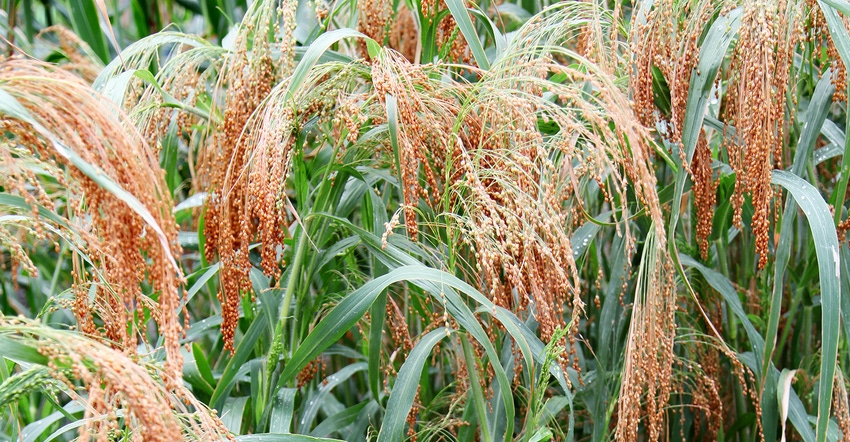February 15, 2017

Changing crop opportunities and weather patterns have farmers looking at a number of alternatives these days. In Colorado, a "flex crop" that may have greater commercial value is proso millet. A meeting is set for Feb. 24 at the Central Plains Research Station in Akron, Colo., to establish a grower organization to support millet as a commercial crop in the state.
The meeting begins at 9:30 a.m., and the purpose is to discuss, establish and organize a grower organization that can support millet as a commercial crop. The agenda includes a range of key topics to make this a reality, including cultivar development, agronomic research, crop insurance needs and marketing support.
Proso millet (Panicum miliaceum) is a warm-season grass that produces seed 60 to 90 days after planting. Proso millet is planted in the U.S. Great Plains as well as many other countries around the world, including China, India, Turkey, Romania and Afghanistan, as well as the former Soviet Union.
In recent years, the number of acres in Colorado planted to proso has been between 250,000 and 300,000, and they typically produce more than half of the total U.S. proso millet production.
There are three main markets for millet — bird feed, livestock feed and human consumption in other countries. The value of the grain marketed is often comparable with other feed commodities.
The crop has proven over decades to be a reliable, drought-tolerant choice for farmers to grow. Acreage currently fluctuates due to a range of factors including government programs, commodity prices and winter wheat survival in the Great Plains. Many farmers already know this can be a beneficial crop due to low production costs and low water requirements. The crop is mainly planted for grain production, but also has potential as a forage source, depending on growing-season moisture and grower management.
In the semi-arid parts of Colorado, many growers recognize the value of proso millet. For more information about the meeting, call Rick Novak at the Colorado Seed Growers Association office at 970-491-6202.
Source: Colorado State Extension Service
You May Also Like




